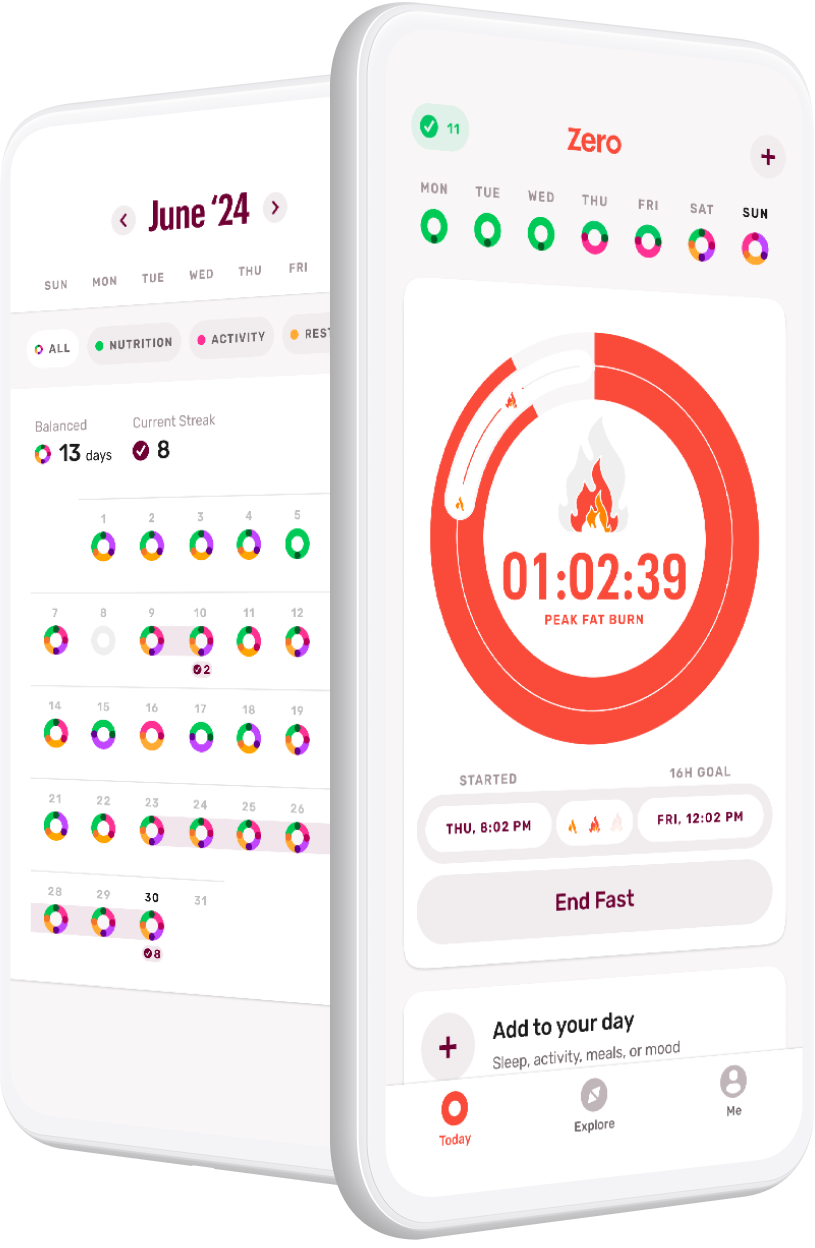While fasting is getting great press for its numerous health benefits, it’s not for everyone. There are a variety of reasons for certain people to avoid fasting, either short or longterm, to stay in optimum health. Here are just a few groups who should likely avoid fasting or work closely with a doctor to devise a specialized plan:
Pregnant or Nursing Mothers
Pregnant women need to be sure to take in an appropriate number of calories and nutrients during gestation. While research varies on the outcomes of fasting during pregnancies, there is some evidence that fasting while pregnant may increase the likelihood of preterm labor and result in babies with lower birth weight or shorter stature. Most significantly is the finding that when a pregnant mother fasts, fetal breathing drops, though it resolves once the mother eats again.
When fasting, pregnant and nursing mothers both have a higher risk for hypoglycemia due to lower blood glucose levels and are at risk of dehydration, which can have an impact on the fetus’s amniotic fluid levels and breast milk production. Therefore, it is generally not recommended.
Eating Disorders
For people struggling with eating disorders such as anorexia nervosa or bulimia, fasting is not recommended, as it can easily play into disordered eating patterns, such as starving or vomiting up meals. Some signs that fasting is becoming disordered eating include:
· Anxiety about eating
· Extreme fatigue (often from lack of nutrition)
· Dramatic changes in hormones or menstrual cycle
To find out if you are at risk of an eating disorder, the National Eating Disorders Association offers this self-assessment tool.
Type 1 Diabetes
Fasting is not recommended in patients whose type 1 diabetes is poorly controlled, including those who have a history of severe hypoglycemia and/or diabetic ketoacidosis; anyone who has additional conditions such as angina, hypertension, or kidney problems; those who are not properly taking their medication; who perform intense physical activity; or are elderly with diabetes. With the permission and observation of a physician, some people with Type 1 diabetes, which is an autoimmune disease, may be able to fast, however, that comes with a huge caveat, and should not be undertaken without medical permission first because fasting can lead to hypoglycemia.
This meta-analysis shows that fasting as a type 1 diabetic can come with some risks, such as hypoglycemia and hyperglycemia. However, it also suggests that the type of insulin therapy used while fasting, along with the supervision of a healthcare practitioner who can adjust the insulin therapy, can mitigate the risk of these adverse events.
Type 2 Diabetes
Under the supervision of a healthcare provider, fasting for people with type 2 diabetes may be safe so long as the diabetes is under control. One study found that a seven day liquid fast of only 300 calories per day proved safe for those with type 2 diabetes. However, another study on people with type 2 diabetes showed that the chance of low blood sugar incidents doubled on fasting days versus non-fasting days, which could lead to hypoglycemic events. So, as long as you are under the care of a medical practitioner who is knowledgeable about fasting, it may be an option for you. Fasting is also shown to be effective for people who have pre-diabetes, but so is simply reducing carbohydrate intake and adding more exercise.
The Elderly
While there are no hard guidelines about the safety of fasting as it relates to age, medical professionals warn that elderly folks with any chronic health conditions, especially diabetes, kidney problems, or heart disease, should not fast as it could be dangerous to their health. If an older adult is in good health and not taking any medication, fasting under the supervision of a doctor may be okay, however, older adults are at greater risk of dehydration, and must be careful to replenish water and electrolytes.
Youths
Growing bodies need good nutrition as consistently as possible. Therefore, fasting is not recommended for kids and teens, who undergo rapid growth and are still developing. For youths that need to lose weight, caloric restriction and reduction of carbohydrates may be just as effective.
Medications
The first rule of fasting is to make sure you consult with your doctor before you begin. This is especially important if you take any medications. Every medication is different. One of the biggest concerns is that many medications need to be taken with food and at a certain time of day, which may interfere with a fasting window, or putting off a medication to a later eating window could impair the medication’s efficacy. Additionally, glucose-lowering medications such as metformin, berberine, and sitagliptin, as well as exogenous insulin should be closely monitored and adjusted during a fast due to their glucose lowering effects. Depending on the type and the duration of the fast, some medications need to be held until the fast is over or moved to a different time of the day or week.
Fasting can also lead to dehydration if one is not careful, which can reduce blood pressure, impair the body’s electrolyte balance, have a negative effect on heart function, and potentially cause kidney damage. If you are taking a medication for blood pressure or kidney issues, this could be very dangerous.
Current Medical Conditions
Anyone with a medical condition should consult their physician before undertaking a fast. Fasting can cause changes in blood sugar, hormones, and blood pressure, which can affect numerous health conditions.
You should also consider situational and external factors when considering a fast including, but not limited to: periods of high stress, travel — especially changing time zones, which can interrupt your circadian rhythm — or high-intensity and prolonged exercise. Each of these situations can put you at a higher risk for hypoglycemia, as well as electrolyte and fluid imbalances. When choosing to fast, these situations need to be considered and a conversation with your doctor or supervising healthcare practitioner is needed.
In Conclusion…
Ultimately, while fasting may sound great, be safe. Consider your specific health conditions and work with your doctor to advise you on the best plan. There are many different fasting protocols — from multiple day, water-only fasts to time-restricted feeding — that support a range of goals and have varying degrees of safety for certain populations. So, when you’re deciding if, when, or how to fast, always consult with a medical professional. Your health will thank you.
- The Complete Guide to Fat Burning - April 30, 2024
- Zero Live #4: 3 Ways to Boost Fat Burning - March 28, 2024
- Zero Live #3: Nutrition, Fast Breakers, and Fasting - March 11, 2024




What will be the limited age for fasting?
I’d also like to know
What about ulcer patients, can they fast?
Ulcer patients should be able to fast. There are many medications that are much more effective in treating peptic ulcers (I assume that’s what you mean by ‘ulcer’). Diet and surgery aren’t
first line treatments nowadays.
Is it safe to fast during mensuration period?
I’d also like to know this.
I’m no doctor and everyone is different, but I think as long as you’re getting the proper amount of nutrients (iron, in particular) and water during your eating window, it should be completely fine. In fact, I have personally felt more energized while fasting during my period. Just my experience though.
First of all, I have to say that I am no expert so I am just sharing my experience… Despite my heavy menstruation days I have no problem even if I fast for 18:4. I am 44 years old and have no health issues. But I should recommend that you should not begin to fast during your cycle if you are a beginner just to be safe.
I don’t understand why it would make a difference. Drink water.
I fast regularly 18:6 during my menses. I feel better than I used to and have less bloating and cravings. My energy is better too.
I cant see why not. I do. Its about how u feel and listening to your body.
The only difference i see is in the days leading up to bleeding- im so hungry i cant fast for any length of time. So i eat good carbs and then back to it once it starts
Should bariatric surgery patients avoid fasts?
I want to know this, too!
How many times per week is it recommended to do the 16:8 intermittent fast?
You can do the 16:8 fast indefinitely, as well as alternating days.
I do it every day, including the weekend.
I’m 60 years old, in excellent health, and not on any medications. Therefore, I have no intention on wasting time and money to consult with a medical doctor that likely knows less about fasting than I do.
Agree. I’m 69 and have been doing 18 – 6 time restricted eating for 162 days. My doctor is my age and doesn’t have a clue. Would love to find a Doctor who is well versed in the subject.
I’m 16 and 225 football player can I fast
What ive learned, it should be okay but you’re Young and shouldn’t Need to really.
I dont know football very well but unless you’re the qb or a running back a few extra pounds is a good thing right?
How about hypothyroidism? Is fast safe?
My doctor actually recommended IF when she told me I have Hashimoto’s. I’ve been doing 16/8-18/6 for a couple of months and I feel great.
I’m also taking euthirox, which is supposed to be taken in a faster state
What about nursing mothers?
How many days if the week should woman fast 16-8
How long until you see some weigh loss? Doing the 16:8 ?
What’s the thoughts on fasting for adrenal fatigue and thyroid patients?
Is fasting applicable for those with Pcos?
Is ok to fast if you take statin for cholesterol?
I have been ill with some kind of flu thing for about a week, and doing 18/6 fasting for about four months. I notice that I’ve been hungry during this illness, while I had not been experiencing hunger at all on my fast before that. This makes me wonder if there is some reason I should be eating more regularly while under the weather. Anyone?
I have chronic gastritis (anxiety related) – I’m a 36 year old woman. Is 16:8 fasting ok for weight loss? Attempting to resolve the anxiety with meds…